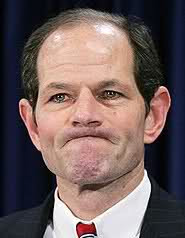"My feelings as a Christian points me to my Lord and Savior as a fighter. It points me to the man who once in loneliness, surrounded by a few followers, recognized these Jews for what they were and summoned men to fight against them and who, God's truth! was greatest not as a sufferer but as a fighter. In boundless love as a Christian and as a man I read through the passage which tells us how the Lord at last rose in His might and seized the scourge to drive out of the Temple the brood of vipers and adders. How terrific was His fight for the world against the Jewish poison. To-day, after two thousand years, with deepest emotion I recognize more profoundly than ever before the fact that it was for this that He had to shed His blood upon the Cross. As a Christian I have no duty to allow myself to be cheated, but I have the duty to be a fighter for truth and justice... And if there is anything which could demonstrate that we are acting rightly it is the distress that daily grows. For as a Christian I have also a duty to my own people.
-- Adolf Hitler, in a speech on 12 April 1922 (Norman H. Baynes, ed. The Speeches of Adolf Hitler, April 1922-August 1939, Vol. 1 of 2, pp. 19-20, Oxford University Press, 1942)
So was Hitler really a Christian or was he just using the knowledge of Christianity that came from his Catholic schooling as a propaganda tool? I think the deeds of his regime answer that so let us look at what Nazism did and tried to do:
Adolf Hitler was politically astute enough to maintain some public distance between himself and the Neo-Pagan ideologues of the Nazi Party. But he was not far from them at heart. After his death documentation became available showing that Hitler had approved grandiose plans to wean the German churches away from Christianity and into the Neo-Pagan fold. To quote Shirer in The Rise and Fall of the Third Reich:
"...under the leadership of Rosenberg, Bormann and Himmler, who were backed by Hitler, the Nazi regime intended eventually to destroy Christianity in Germany, if it could, and substitute the old paganism of the early tribal Germanic gods and the new paganism of the Nazi extremists. As Bormann, one of the men closest to Hitler, said publicly in 1941, 'National Socialism and Christianity are irreconcilable.'
What the Hitler government envisioned for Germany was clearly set out in a thirty-point program for the 'National Reich Church' drawn up during the war by Rosenberg, an outspoken pagan...
"The National Reich Church of Germany categorically claims the exclusive right and the exclusive power to control all churches within the borders of the Reich: it declares these to be national churches of the German Reich.
"The National Church is determined to exterminate irrevocably...the strange and foreign Christian faiths imported into Germany in the ill-omened year 800...
"The National Church has no scribes, pastors, chaplains or priests, but National Reich orators are to speak in them.
"The National Church demands immediate cessation of the publishing and dissemination of the Bible in Germany...'"
"On the altars there must be nothing but 'Mein Kampf' (to the German nation and therefore to God the most sacred book) and to the left of the altar a sword.
"On the day of its foundation, the Christian Cross must be removed from all churches, cathedrals and chapels...and it must be superseded by the only unconquerable symbol, the swastika."
(The Rise and Fall of the Third Reich, by William L. Shirer, p. 240 in some editions, p. 332 in others. Chapter headed "Triumph and Consolidation", subsection "The Persecution of the Christian Churches")
Martin Bormann was faithful to Hitler till the end, sprinkling gasoline on the bodies after Hitler's suicide. This true believer put it this way:
"National Socialist and Christian concepts are incompatible. The Christian Churches build upon the ignorance of men and strive to keep large portions of the people in ignorance because only in this way can the Christian Churches maintain their power. On the other hand, National Socialism is based on scientific foundations. Christianity's immutable principles, which were laid down almost two thousand years ago, have increasingly stiffened into life-alien dogmas. National Socialism, however, if it wants to fulfill its task further, must always guide itself according to the newest data of scientific researches.
"The Christian Churches have long been aware that exact scientific knowledge poses a threat to their existence. Therefore, by means of such pseudo-sciences as theology, they take great pains to suppress or falsify scientific research...No one would know anything about Christianity if pastors had not crammed it down his throat in his childhood. The so-called loving God by no means reveals the knowledge of His existence to young people, but amazingly enough, and despite His omnipotence, He leaves this to the efforts of a pastor. When in the future our youth no longer hear anything about this Christianity, whose doctrine is far below our own, Christianity will automatically disappear.
"[...] When we National Socialists speak of a belief in God...[we mean] [t]he force which moves all these bodies in the universe, in accordance with natural law, is what we call the Almighty or God. The assertion that this world-force can worry about the fate of every individual, every bacillus on earth, and that it can be influenced by so-called prayer or other astonishing things, is based either on a suitable dose of naivete or on outright commercial effrontery."
"Any influence that would impair or damage the leadership of the people exercised by the Fuhrer with the aid of the NSDAP has to be eliminated. To an ever increasing degree the people must be wrested from Churches and their agents, the pastors...Only the Reich leadership, together with the party and the organs and associations connected with it, has a right to lead the people. Just as the harmful influence of astrologists, soothsayers, and other swindlers has been suppressed by the state, so it must be absolutely impossible for the Church to exercise its old influence."
(Martin Bormann, Reich Leader, 1942, 'National Socialist and Christian Concepts are Incompatible', From Kirchliches Jahrbuch fur die evangelische Kirche in Deutschland, 1933-1944, pp. 470-472, quoted pp. 245-247, George L. Mosse, Nazi Culture: A Documentary History).
Hitler's contempt for Christians and the Bible was genuine and well-attested. Of Roman Catholic upbringing, he was, however, a theist, who seems to have had a vague religious faith, attributing his escape from Stauffenberg's bomb to "Providence." (Colonel Stauffenberg had placed a briefcase containing a bomb at the Fuhrer's feet, then hastily departed. Not owing to any break in the course of nature, but simply because somebody found the clumsy briefcase to be in the way, it had been moved before exploding, and Hitler survived.) He spoke to the nation: "The bomb planted by Colonel Count Stauffenberg exploded two meters to the right of me...I myself an entirely unhurt, aside from some very minor scratches, bruises and burns. I regard this as a confirmation of the task imposed upon me by Providence..." (The Rise and Fall of the Third Reich, William L. Shirer, p. 1069). He considered this "Providence" to favor the strong over the weak:
"...I may be no pious churchgoer, but deep within me I am nevertheless a devout man. That is to say, I believe that he who fights valiantly obeying the laws which a god has established and who never capitulates but instead gathers his forces time after time and always pushes forward---such a man will not be abandoned by the Lawgiver. Rather, he will ultimately receive the blessing of Providence."
(Adolf Hitler, in his June 26, 1944 speech to industrialists, quoted by Albert Speer, p. 555, Inside the Third Reich.)
But He was no Christian, and his movement was no celebration of Christianity. He thought ill of Christianity, preferring Islam for its warrior spirit:
"You see, it's been our misfortune to have the wrong religion. Why didn't we have the religion of the Japanese, who regard sacrifice for the Fatherland as the highest good? The Mohammedan religion too would have been much more compatible to us than Christianity. Why did it have to be Christianity with its meekness and flabbiness?"
(Adolf Hitler, quoted by Albert Speer, p. 96, Inside the Third Reich.)
The "meekness and flabbiness" to which Hitler objected in Christianity fell straight from the lips of its Founder: "But whoever slaps you on your right cheek, turn the other to him also." (Matthew 5:39).
While it is difficult to fix the boundary between the fringe and the mainstream, the general tenor of Nazi ideology was in favor of the old Nordic paganism and against Christianity:
"The German people is no longer blinded by illusions as at the time of the Reformation. It has come to recognize not only Judaism, but Christianity too, as foreign to its genius.-- Der Blitz, January 12, 1936, quoted p. 6, The War Against God, edited by Carl Carmer).
"But today a new faith is awakening: the myth of the blood...Then in place of the Old Testament stories of cattle breeders and the exploitation of prostitutes, we shall have the Nordic sagas and fairy tales, at first simply recounted, later assuming the form of symbols." (Alfred Rosenberg, Myth of the Twentieth Century, 1932, quoted p. 6, The War Against God, edited by Carl Carmer).
"The teaching of mercy and love of one's neighbor is foreign to the German race and the Sermon on the Mount is according to Nordic sentiment an ethic for cowards and idiots.-- Hans Hauptmann, Bolshevism in the Bible (Nazi textbook), 1937, quoted p. 28, The War Against God, edited by Carl Carmer).
"If Jehovah has lost all meaning for us Germans, the same must be said of Jesus Christ, his son...He certainly lacks those characteristics which he would require to be a true German. Indeed, he is as disappointing, if we read his record carefully, as is his father.-- E. K. Heidemann, 'What the Christian Does not Know about Christianity,' September, 1935, quoted p. 105, The War Against God, edited by Carl Carmer).
The above article is adapted from here by John Ray (M.A.;Ph.D.). Revised March, 2008.











No comments:
Post a Comment